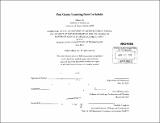| dc.contributor.advisor | Anne Whiston Spirn. | en_US |
| dc.contributor.author | Hu, Allison (Allison May) | en_US |
| dc.contributor.other | Massachusetts Institute of Technology. Dept. of Architecture. | en_US |
| dc.coverage.spatial | s-ag--- | en_US |
| dc.date.accessioned | 2012-09-13T18:53:16Z | |
| dc.date.available | 2012-09-13T18:53:16Z | |
| dc.date.copyright | 2012 | en_US |
| dc.date.issued | 2012 | en_US |
| dc.identifier.uri | http://hdl.handle.net/1721.1/72814 | |
| dc.description | Thesis (S.M.)--Massachusetts Institute of Technology, Dept. of Architecture, 2012. | en_US |
| dc.description | Cataloged from PDF version of thesis. | en_US |
| dc.description | Includes bibliographical references (p. 107-109). | en_US |
| dc.description.abstract | This thesis seeks to expand the potential role of urban design for informal places under the process of formalization. More specifically, it examines the spatial principles that comprise the successful cultural and economic underpinnings of a self-made place and then find opportunities for design to amplify or improve upon them. To make such strategies practical, the thesis asks a methodological question: how does one design for variety and participation, towards a vision that will unfold over time and by the hands of many actors, without compromising one's role as a designer? An exceptional case study, La Salada Fair, provides initial design principles. A large commercial market covering a dense half square mile in Buenos Aires, Argentina, La Salada represents the increasing tendency for users to shape sophisticated and culturally influential urban spaces in the modern metropolis, particularly in the context of weakened governance. Yet without an external eye overseeing the process, there are inherent limits to the scope of concerns. Shaped by new insights and critiques, a design proposal imagines a future for the factory-market. Taking the form of a conceptual game, the proposal compresses an incremental formation process, presents a method for collective evaluation, and clarifies the role of design. | en_US |
| dc.description.statementofresponsibility | by Allison Hu. | en_US |
| dc.format.extent | 111 p. | en_US |
| dc.language.iso | eng | en_US |
| dc.publisher | Massachusetts Institute of Technology | en_US |
| dc.rights | M.I.T. theses are protected by
copyright. They may be viewed from this source for any purpose, but
reproduction or distribution in any format is prohibited without written
permission. See provided URL for inquiries about permission. | en_US |
| dc.rights.uri | http://dspace.mit.edu/handle/1721.1/7582 | en_US |
| dc.subject | Architecture. | en_US |
| dc.title | Fair game : learning from La Salada | en_US |
| dc.type | Thesis | en_US |
| dc.description.degree | S.M. | en_US |
| dc.contributor.department | Massachusetts Institute of Technology. Department of Architecture | |
| dc.identifier.oclc | 806323224 | en_US |
